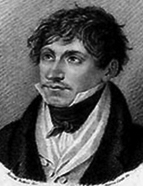

As far as his interpretation of the Discoveries is concerned, Bertolotti claims that the Portuguese set out on their maritime adventure not only because of the need they felt to perform great feats, but also due to the fact that the sea was the only space to which they could turn if the military pressure exerted by their Spanish neighbours is taken into account. These reasons, together with the need for King D. João I to control the “spirito turbolento dei suoi sudditi” (t. I, p. 186), open up the gateways of the seas to the kingdom. Bertolotti therefore sees the Discoveries as the moment for an unavoidable conquest of space at the same time as being an outlet valve for internal social pressures. In his critical description he gives no indication as to the causes of the decline that occurs at various times, unlike the liberal Portuguese historiography of the nineteenth century. The “decadence” identified by Bertolotti coincides with the loss of national sovereignty in 1580 when Portugal came under the Spanish rule of Philip II; in other words the eclipse of a monarchy that had known how to identify with the nation itself (a brave and belligerent nation) through its representative institution – the Cortes – the bedrock of Portugal’s age of prosperity and military and commercial splendour, which was called into question by the disappearance of “um giovinetto re, tratto da un imprudente amor di combattere”, thus leaving the field wide open for domination by Spain, “funesta al Portogallo come alle Fiandre e all’Italia” (t. I, p. 7).
The final part of the work includes descriptions of national institutions, people, architecture, the Portuguese language and Portuguese literature, all of which are summarised in a chapter of some seventy pages. The style is the same as in the compendiums that marked the literary production of the time and the historical period in which the author lived. In this final part it becomes clear that Bertolotti resorted to works by other writers to produce his own work. What always stands out though is that he had his own special interests and that he was interested in a wide range of subjects. It is in fact this interdisciplinarity that, in a certain way, gives value to the whole work, showing the extent of the author’s ability to synthesize yet at the same time revealing his breadth of vision, neither of which should be underestimated. His analysis is always interesting to read: in his description of the Inquisition he points out how “non fu giammai così crudele nel Portogallo come in Goa e nella Spagna” (t. III, p. 114); he emphasizes the role played by the Marquis of Pombal in putting an end to the influence and power of the religious tribunal (reminding us of certain words uttered decades later by Antero de Quental in the Conferências Democráticas [Democratic Conferences]); and he classifies the distinction between old and new Christians (in the time of D. Manuel I) as “ridiculous”.
